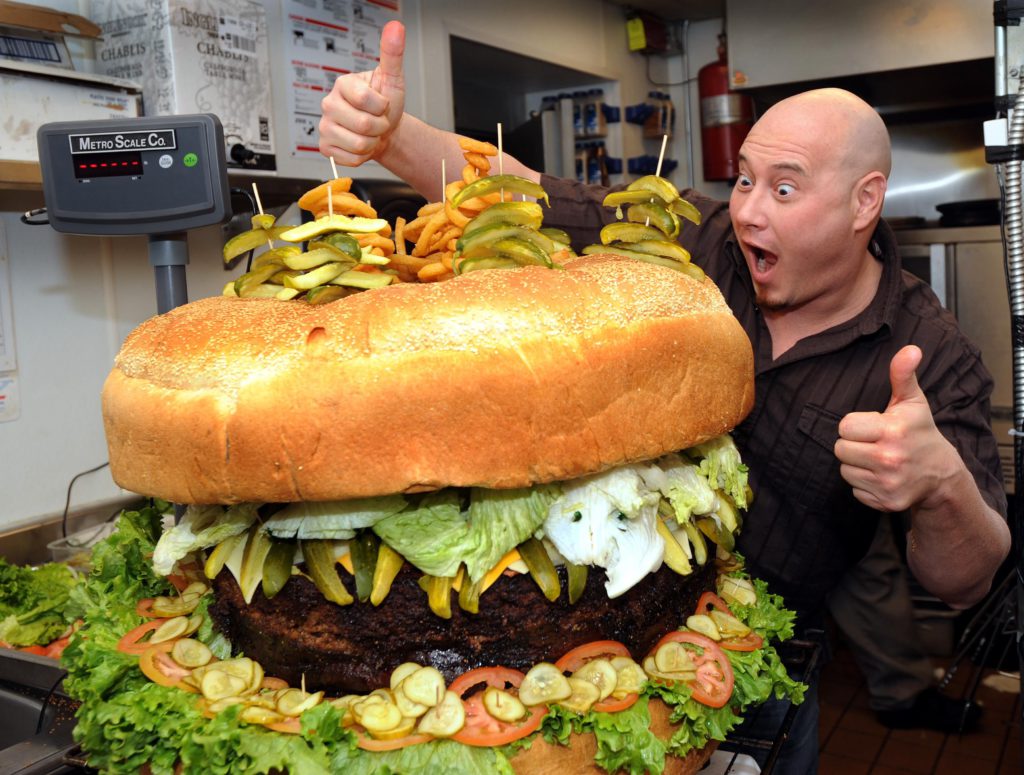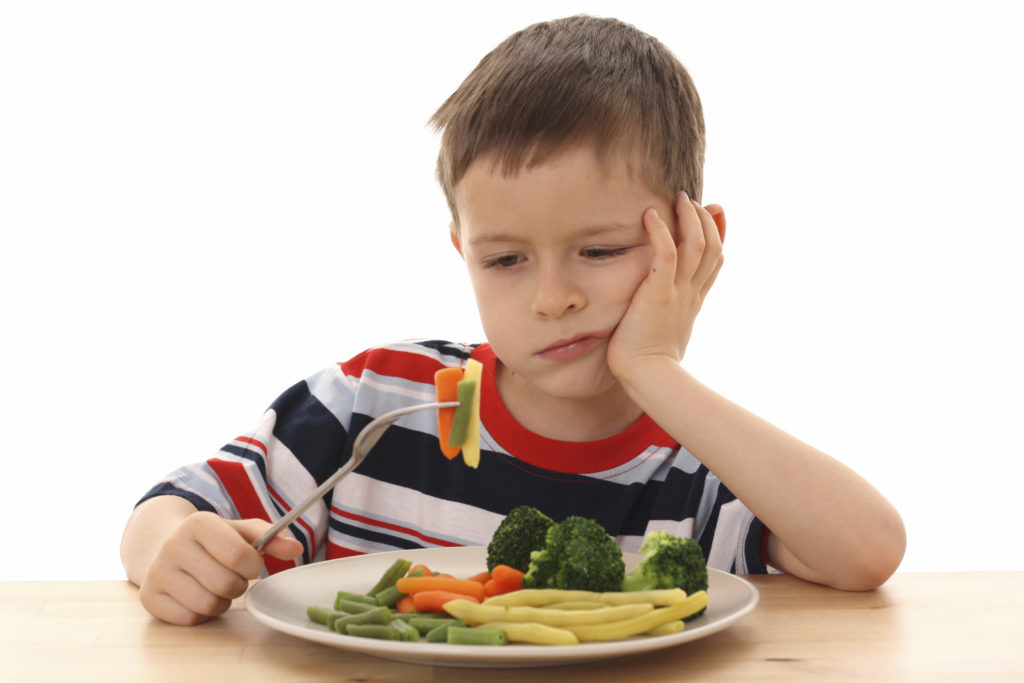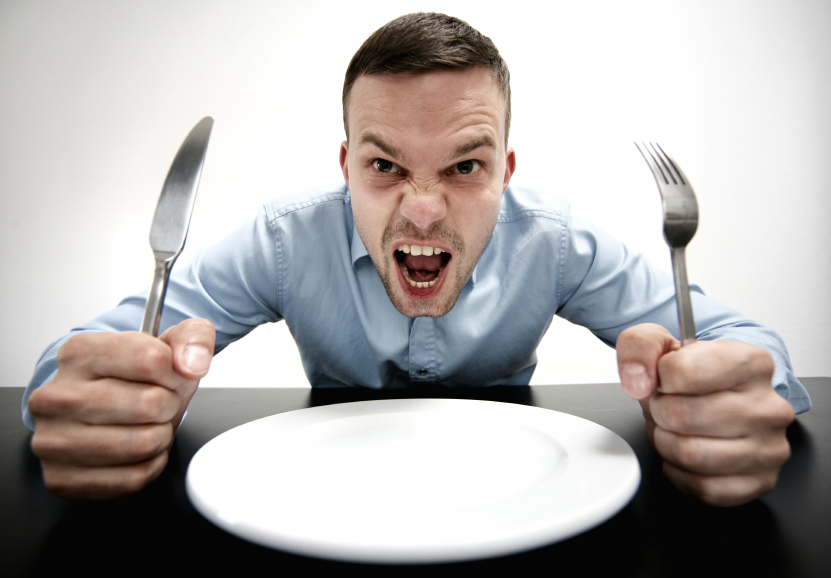Most of us typically eat on a regular basis. You know, breakfast, lunch, dinner. Throw in some snacks from time to time. Sometimes I’ll mix it up and have “linner”. You know, that magical meal between lunch and dinner. Or on the weekends I’ll have a brunch. When I do either of those the meals are pretty substantial. Occasionally after eating one of those king size meals I’ll feel like an anaconda digesting a deer. Once or twice a week I’ll skip breakfast and do my version of fasting. And while I do like the way it makes me feel to skip that meal by the time I get some lunch I feel famished. And I eat a TON. So the eating is pretty regular with some occasional mix-ups thrown in. All this got me thinking, how long can you live without food?

Various Factors
The reality is there is not hard and fast rule for how long can you live without food. It’s not like you’ve got 21 days and BOOM you drop over. There’s a variety of factors that go into how long you can live without food. Your body also adapts to a decrease in food pretty easily in the short term.
Your body actually adjusts itself if you engage in a short-term fast or are unable to access food and water for longer stretches of time. This allows people to engage in religious fasts and even try “fasting” diets like the eat, stop, eat, type of approach without doing a lot of damage to their bodies.
It takes about eight hours without eating for your body to change how it operates. Before that, it functions as if you were eating regularly. This is one of the various factors that play into how long can you live without food. the body is pretty amazing the way it adapts.
Glucose
Under normal circumstances, your body breaks down food into glucose. As you probably already know glucose provides energy to the body.
Once the body hasn’t had access to food for 8 to 12 hours, your glucose storage becomes depleted. Your body will begin to convert glycogen from your liver and muscles into glucose. This is how your body starts to adapt.
After your glucose and glycogen are depleted, your body will begin to use amino acids to provide energy. This process will affect your muscles and can carry your body along for about three or so days of starvation before metabolism makes a major shift to preserve lean body tissue.
To prevent excessive muscle loss, the body begins to rely on fat stores to create ketones for energy, a process known as ketosis. Ketosis, and the keto diets, are something most of us have heard about these days. You will experience significant weight loss during this time. One of the reasons women are able to sustain starvation longer than men is that their bodies have a higher fat composition. Females are also able to hold on to protein and lean muscle tissue better than males during starvation.
The more fat stores available, the longer a person can typically survive during starvation. Once the fat stores have been completely metabolized, the body then reverts back to muscle breakdown for energy, since it’s the only remaining fuel source in the body. This is when things really go south.
Muscles for Energy
You’ll begin to experience severe adverse symptoms during the stage of starvation where your body begins using its muscle reserves for energy. A study in the British Medical JournalTrusted Source states that those undergoing a hunger strike needs to be monitored closely for severe side effects of starvation after losing 10 percent of their body weight. It also says that very serious conditions will occur when an individual loses 18 percent of their body weight. Can you image losing 18 percent of you body weight? That would equal 36 pounds for me – yikes. Hard to imagine.

Risks of Restrictive Eating
It goes without saying that no access to food and water can have seriously detrimental effects on your body. Your body’s many systems will begin to deteriorate despite your body’s ability to continue for days and weeks without food and water. As you are probably aware water is the most important but food is right behind it.
Some of the many side effects of starvation include:
- faintness
- dizziness
- blood pressure drop
- heart attach
- dehydration
- slowing heart rate
- hypotension
- weakness
- low potassium
- thyroid malfunction
- abdominal pain
- body temperature fluctuation
- post-traumatic stress or depression
- organ failure
Those who experience starvation for a prolonged time can’t begin to consume normal amounts of food right away. The body needs to be very slowly eased in to eating and processing food again to avoid adverse reactions, known as refeeding syndrome, including:
- heart conditions
- neurological conditions
- swelling of the body’s tissue
Resuming eating after starvation will require a doctor’s supervision and may involve eating boiled vegetables, lactose-free foods, and a low-protein, low-sugar diet. All kinds of “fun” stuff before you get to have real food.

Conclusion
It’s not a bad idea to mix things up and skip a meal here and there. Our bodies are resilient and can adapt to change when needed. Giving your body a shock from time to time can definitely be a good thing.
With that said it’s obviously not a good idea to go without food for long periods on purpose. Now if the Zombie apolocypse happens well, you do what you have to do. It’s much easier on your body to go without food for a while when absolutely necessary. Not so much with the water.
There is no exact formula for how long can you live without food. Good idea not to test it though!
In good health,
Mat A.


A long time ago I heard people say that if you don’t eat, you can live for about 10 days. If you don’t drink water, it may only be 3 days. Some time ago, in order to lose weight, I also specifically reduced the amount of food, not even eating. I feel that my body is still ok, just a little hungry. You have a point of view, I agree, just don’t test your limits.
Thanks JAX – good to try some different things out for sure but don’t go too far.
You actually got 2 comments from me because when I clicked on your page I saw a topic that was recently discussed in my house and I had to go check it out. Back to this, I like your posts. I think you do a great job describing things and you keep me interested until the article is over. I like your topic of trying to live without food, and the side effects of trying to. And I have to throw this out there, I love your pictures, they made me laugh.
Annie – thank you for the kind words! That was really great hearing your thoughts on the article.
I absolutely love your blog! Your wit, wisdom and sense of humor make me keep coming back for more! I think this post was one of my all-time favorites! (Especially the part about the zombie apocalypse. I am all about zombies!)
I never go more than a day without food (unless I absolutely have to). As a type 2 diabetic, if I don’t, I get low blood sugars and get really sick. I’ve been told that, under supervision, I could attempt a fast, but that it would be risky.
When I was a kid I could go for days without eating, but mostly this was at summer camp. I am not sure who I was trying to impress with my fortitude!
Anyway, keep up the great posts. They are great!
Karen,
Thanks so much for the kind words, I really appreciate it. I never go a day without food either. It’s hard enough for me to skip one meal!
Well, I have not stayed without food for one food day before but I have stayed without food from in the morning and ate something in the evening (Fasting). Most times I don’t feel a thing but most times, u feel like I should die. The feelings depends on some factors I can’t really tell.
Well, I don’t joke with food but sometimes I skip food in order to save the money for a goal I have set.
Good vibes!
Thanks so much! I skip a meal here and there to give my body a jolt – cheers!
It is a highly informative article that I truly enjoyed.
Occasional fasting or skipping a meal at times is good for the body.
Consuming huge meals typically occurs after fasting is not healthy per my doctor. Always look after the portion sizes.
I was tired, feeling dizzy after 3 days of fasting once. That was the longest I ever fasted.
Thanks for sharing Anusuya! I’ve never fasted for 3 days – very impressive!